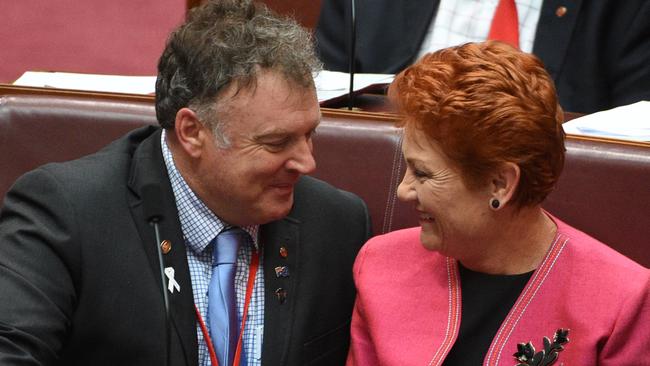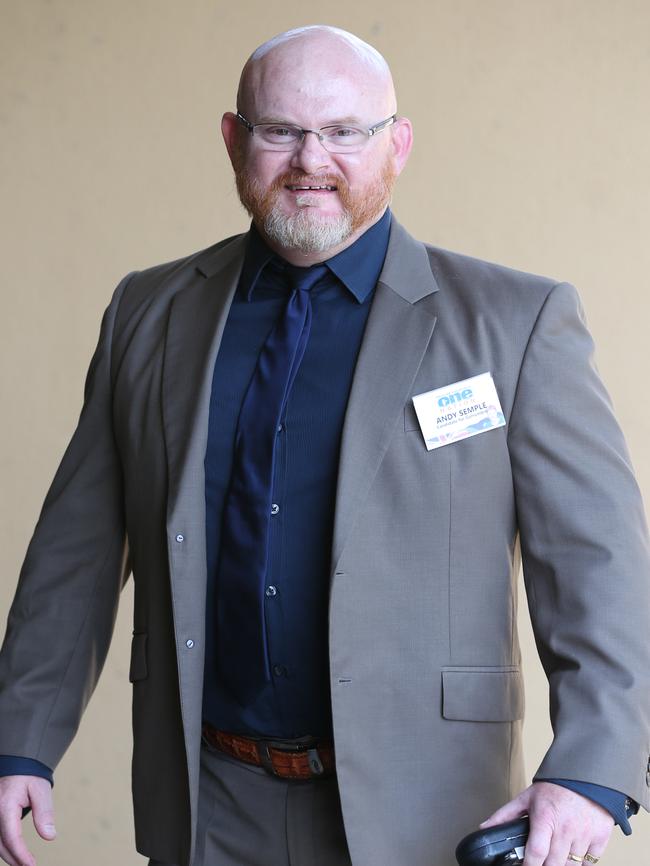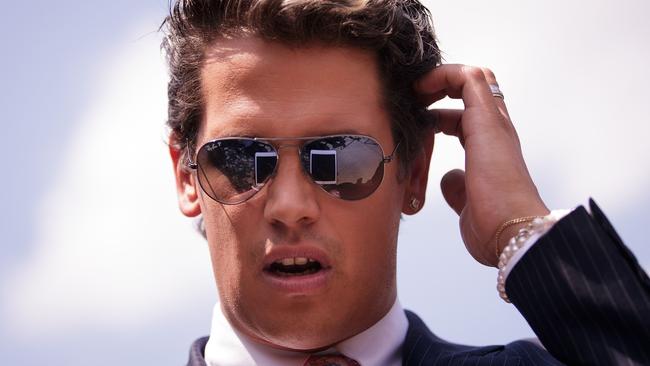Speak freely. As long as you agree with me
Free speech — the ability to say anything without censorship or restraint — is a lovely, wafty idea, but even in the most civil society, it does not exist.

Rendezview
Don't miss out on the headlines from Rendezview. Followed categories will be added to My News.
You may speak freely as long as you agree with me: that is the unwritten rule, a prevailing message, loud and clear.
Fleeting Queensland One Nation candidate Andy Semple was felled over a cheeky tweet in response to a pejorative LGBTI joke. The party whose leader spouts the need for greater freedom of speech did not share his opinion.
And that meant it was over for him.
One Nation members and candidates have freedom of speech, as long as they toe the party line, evidently. Senator Rodney Culleton learnt that too. They are not as different from other parties as they claim to be.
The One Nation candidate’s false start is just one more example of a limitation imposed by those who claim to love liberty with language.
Free speech — the ability to say anything without censorship or restraint — is a lovely, wafty idea, but even in the most civil society, it does not exist. At least, practically, it cannot exist without anarchy riding shotgun and it is time we accepted that.

There are restraints inherent in our social and legal fabric. In social settings, words spoken to friends are not the same as those shared with grandma. Certainly, not long ago, that was the case: context is everything.
Some views expressed are illegal or incite others to crime or violence, making the rest of us unsafe. There must be controls around these, and that inherently limits freedom.
Freedom of speech’s proponents hold it up as a human right, as important as food and shelter, but our forebears ranked it so lowly they neglected to include that entitlement in our legal bedrock, the Constitution.
And the words of the legislative layers built on the Constitution have been shown to harm some and help others.
The current parliamentary human rights committee inquiry into section 18C of the Racial Discrimination Act is chewing over whether a law against being offended should remain and whether it reflects our society’s needs and citizens’ desires.
That part of the Act makes a behaviour illegal if a person is likely to be offended, insulted or humiliated as well as intimidated in relation to race. It does not take into account context or intent, just the feelings of the subject of comment.
The Act has been invoked to censor public debate, as demonstrated in cases against cartoonist Bill Leak, columnist Andrew Bolt and some Queensland University of Technology students.
And while it has also offered an avenue of solace to those who have felt racially insulted, it certainly puts restraints around expressions of freedom of speech.
Accepting we need some limits and addressing how to frame those would certainly narrow our scope and enable us to develop more pointed conversations around what we want and want to be.
Surely, those who speak freely accept that their views might be inelegant and insulting to some others, and in exercising that freedom, must also take responsibility for the consequences.
In America, freedom of speech is sewn in like a backpacker’s souvenir.
But even its future president Donald Trump has limited it, denying media he deems recalcitrant access to himself, labelling those speak against him “scum” and “dishonest”, and threatening to lock up those with dissenting views.
Those who are most vocal in their support and use of free speech too often become propagators of hate. It is a noxious byproduct, it seems.
And in cyberspace, the poison courses through far-reaching veins at an unprecedented rate.
In the US, former tech writer and wildly popular Twitter troll Milo Yiannopoulos is currently being hosted by so-called free speech groups at universities on his “Dangerous Faggot” tour.

The self-styled British enfant terrible who says he speaks brick-in-the-face truth is the darling of the anti-political correctness sector, speaking violently and colourfully against Muslims, feminists, non-whites, and proponents of social justice.
His fan base of the Right (he has been called a leader of the “Alt-Right”) are whipped into a frenzy, as people so often are when they find a vehicle of like minds.
But the result is often the promotion of harassment of marginalised people. And when those people speak up, they are blamed for the bigotry against them.
It is the ultimate victim-is-framed-as-aggressor result, and it is reproduced over and over.
How does the finger of flame turn on itself? Simple: it is fired up by fear and loathing.
Lies delivered as truth are fuel on the flames.
Extremists from all sides use it.
They “other” anyone different, saying what they have is unfair, encouraging harassment with intent to silence and harm. The mob grows quickly and hate feeds on the virtual blood in the water.
If only such energy could be used positively to build societal harmony.
Until we are mature enough to engage in real discussion, to accept that there is room for varying informed, educated views and to accept consequences for our own actions, we sadly need some frames around freedom of speech.
The voiceless and marginalised, particularly, need a safety net.
fclintonj@optusnet.com.au


